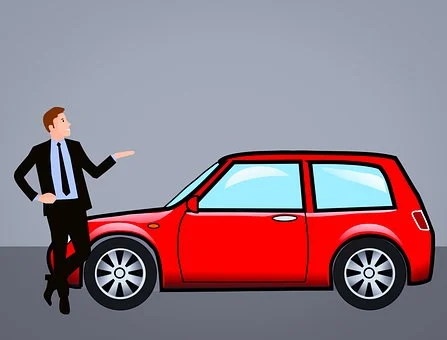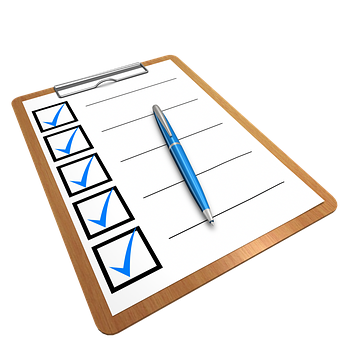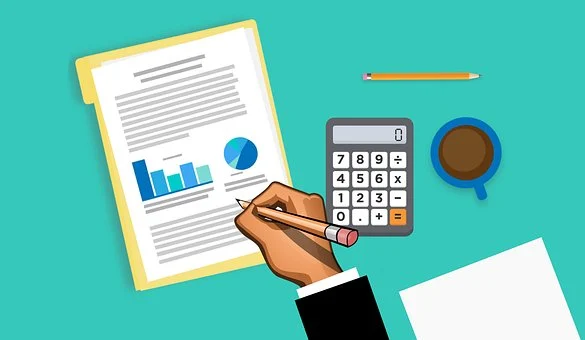
Are you thinking about Buying a used car? 🤷
It’s understandable if you feel a bit overwhelmed by the process. After all, buying a used car comes with its own set of challenges and considerations. But don’t worry! With a little bit of knowledge and some careful examination, you can find a reliable and high-quality vehicle that meets your needs and fits your budget. In this blog, we’ll take a closer look at the most important things you need to examine when buying a used car. We’ll cover everything from the car’s condition and history to its features and performance. By the end of this article, you’ll have the confidence to make an informed decision and drive away with a car you can trust. So, let’s dive in!
Why do People get Cheated In Buying Used cars? 😩 🕵️♂️

It’s common for people to end up getting cheated when they buy used cars, especially if they don’t have the expertise or knowledge to assess the vehicle’s condition or identify any potential issues that may result in expensive repairs in the future. The situation is compounded when sellers deliberately misrepresent important information or hide details about the car’s history or state just to make a sale. There are several reasons why buyers get cheated when purchasing used cars, including a lack of knowledge, concealed problems, emotional attachment, and pressure to buy.
To avoid being cheated when buying a used car, you need to carry out thorough research, know what to look for, and get an independent evaluation from a reliable mechanic. It’s also crucial to be cautious of sellers who appear overly pushy or unwilling to divulge information about the car’s history or condition.
🕵️♂️Checklist For Buying Used Cars 😌

Buying a used car can be an exciting and daunting experience. While it offers a more affordable option than purchasing a brand-new vehicle, there are several factors to consider to ensure you make the right decision. Here are 27 tips to help you find 🕵️♂️ the right used car for your needs and budget.
- Determine Your Budget: Before starting your search, it’s important to establish your budget and how much you can afford to spend on a car payment.
- Research and Identify the Right Used Car: Research the different models and brands available in the market to identify the one that meets your needs and wants.
- Bring a Knowledgeable Friend: Consider bringing a friend who is knowledgeable about cars to the inspection. They can help you identify any potential issues with the vehicle.
- Inspect the Car on Level Ground: Make sure the car is resting on level ground during the inspection to ensure an accurate assessment.
- Check for Under-Body Rust and Leaking Fluids: Examine the under-body of the car for any signs of rust or leaking fluids.
- Examine the Exhaust System: Check the exhaust system for black spots, greasy grime, and white vapor. This can be a sign of potential issues.
- Check the Frame: Inspect the frame for any signs of prior accidents. Look for any dents, bends, or other damages.
- Inspect the Glass: Check the glass for any chips or cracks. This can affect visibility and potentially compromise the safety of the vehicle.
- Ensure the Car Passes Required Smog or Emissions Tests: In some states, smog or emissions tests are required to ensure the car is environmentally friendly.
- Check Under the Hood: Inspect under the hood for any rust, dents, or visible damage. This can give you an idea of how well the car has been maintained.
- Inspect the Engine: Check the engine for leaks, corrosion, funny sounds, or smells. This can give you an idea of the car’s overall condition.
- Check Hoses and Belts: Inspect the hoses and belts for any signs of wear and tear. These components can affect the car’s overall performance.
- Inspect the Transmission Fluid: Check the color of the transmission fluid. This can give you an idea of how well the car has been maintained.
- Check the Interior: Check the interior of the car for any unwanted smells or signs of wear and tear.
- Inspect the Seats: Check the seats for any signs of wear and tear. This can give you an idea of how well the car has been maintained.
- Test the Electronic Components: Test all of the electronic components, including the radio, air conditioning, and power windows. Make sure they are working properly.
- Take the Car for a Test Drive: Take the car for a test drive to get a feel for how it handles on the road.
- Listen for Unusual Noises: Listen for any unusual noises when driving the car. This can be a sign of potential issues.
- Test the Brakes: Test the brakes to make sure they are working properly. This is a crucial safety feature.
- Check the Tires: Check the tires for any signs of wear and tear, as well as the spare tire. This can affect the car’s overall performance and safety.
- Check the Car’s Mileage: Check the car’s mileage to ensure it matches the seller’s claims. This can give you an idea of how much wear and tear the car has undergone.
- Check the Car’s Title: Check the car’s title and make sure there are no liens or other issues. This can affect your ability to register the vehicle.
- Ask for Service Records: Ask for service records to ensure the car has been properly maintained. This can give you an idea of what repairs and maintenance have been done on the car and when.
- Research the Car’s Value: Research the car’s value to make sure you are paying a fair price. You can use resources like Kelley Blue Book or NADA to get an idea of the car’s worth.
- Negotiate the Price: Don’t be afraid to negotiate the price with the seller. Use the information you have gathered during the inspection and research process to make an informed offer.
- Consider a Pre-Purchase Inspection: Consider getting a pre-purchase inspection from a trusted mechanic. This can give you an expert opinion on the car’s overall condition.
- Have all Necessary Paperwork: Make sure you have all the necessary paperwork and documentation before finalizing the sale. This includes the title, registration, and any warranties or service records.
Summary

Buying a used car can be a great way to save money, but it’s important to do your due diligence and thoroughly inspect the vehicle before making a purchase. Follow these 27 tips to help you find the right used car for your needs and budget. And remember, it’s always better to be cautious and take your time than to rush into a purchase that you may regret later on.
Regular Maintenance Of Diesel Engine Vehicle: 6 Points To Consider – TheAutoEngineer.com
